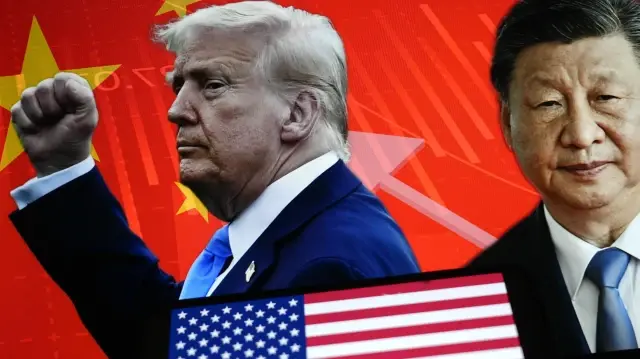Trump accepts Beijing visit as Xi–US call seeks stability in China ties

Former US President Donald Trump said he held a “very good” call with China’s President Xi Jinping and agreed to travel to Beijing in April, weeks after their meeting in South Korea. Both leaders discussed global conflicts, trade issues and the need to maintain steady dialogue as tensions over Taiwan and the Russia-Ukraine war continue to shape regional dynamics.
US–China relations entered a new phase of cautious engagement this week after former US President Donald Trump announced that he spoke by phone with Chinese President Xi Jinping and accepted an invitation to visit Beijing in April. Trump said the conversation covered a broad range of topics, including the Russia-Ukraine war, US farm exports and fentanyl-related concerns, adding that both governments want to preserve open channels of communication.
Trade, agriculture and strategic dialogue
In a message posted on his Truth Social platform, Trump said the two sides had made meaningful progress since their October summit in Busan, South Korea, where they agreed to a one-year arrangement addressing trade and tariffs. He emphasized agricultural cooperation in particular, calling the latest understanding “an important deal for our farmers.” Trump said he also invited Xi for a state visit to Washington later in the year.
Beijing raises Taiwan and post-war order
Chinese state media offered a different emphasis, noting Xi’s remarks that Taiwan’s return to China was part of the post-World War II framework. According to Xinhua, Xi urged Washington to help protect what he called the “victorious outcomes” of the post-war settlement. Taiwan remains a major fault line in China–US relations, with Beijing describing the island as a province awaiting reunification and Taipei asserting self-rule since 1949.
The United States maintains a policy of supporting Taiwan’s defense under the Taiwan Relations Act and the Six Assurances. Japan, a key US ally hosting more than 50,000 American troops under a mutual defense treaty, has also been pulled into the debate. Japanese Prime Minister Sanae Takaichi recently said that a Chinese attack on Taiwan could constitute a “survival-threatening situation” for Japan—comments that triggered strong objections from Beijing and new travel and trade restrictions from China, including a renewed ban on Japanese seafood.
Ukraine war and the search for a peace framework
The leaders also reviewed the continuing Russia-Ukraine conflict. Xi said China supports any initiative aimed at creating space for dialogue and reducing confrontation. A US-backed proposal to advance negotiations is currently being discussed in Geneva with representatives from Washington, Kyiv and several European capitals.
Xi calls Busan summit ‘successful’ and urges broader cooperation
During Monday’s call, Xi repeated that the Busan meeting was “successful,” saying it helped adjust what he described as the “course of the giant ship of China-US relations.” He called on both governments to widen areas of cooperation and narrow points of friction, arguing that global stability benefits when the world’s two largest economies remain engaged.
US media, including The Wall Street Journal, reported that Xi initiated the phone call—an unusual diplomatic move that analysts interpreted as a signal of Beijing’s desire to stabilize ties and reinforce Washington’s adherence to its One China policy.







Comments you share on our site are a valuable resource for other users. Please be respectful of different opinions and other users. Avoid using rude, aggressive, derogatory, or discriminatory language.